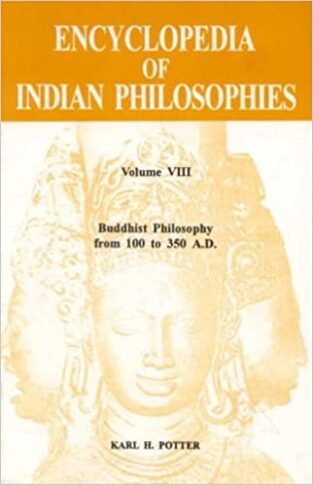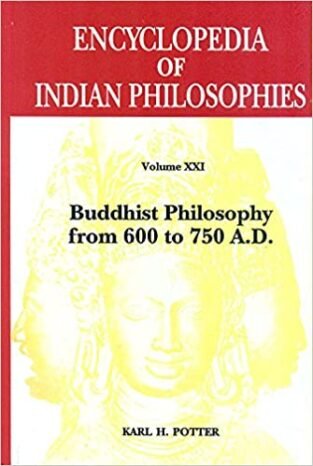- Empty cart.
- Continue Shopping

Encyclopedia of Indian Philosophies (Vol. 12): Yoga: India’s Philosophy of Meditation – By Gerald Games Larson (Author) – MLBD Publications
₹1,650Current price is: ₹1,650.₹2,200 Original price was: ₹2,200.
Encyclopedia of Indian Philosophies (Vol. 12): Yoga: India’s Philosophy of Meditation – By Gerald Games Larson (Author) – MLBD Publications
₹1,650Current price is: ₹1,650.₹2,200 Original price was: ₹2,200.
Hardcover – 1 January 2016
In stock
The volume Yoga: India’s Philosophy of Meditation, traces the intellectual history of Patanjala Yoga philosophy from the early centuries of the Common Era through the twentieth century. This volume also provides a systematic discussion of the philosophy of classical yoga. Particular attention is given to the meaning of “”concentration”” (samadhi), “”engrossment”” (samapatti)and the “”extraordinary cognitive capacities”” (vibhutis, siddhis) and the role that these notions play in the Yoga philosophy, which are relevant for issues currently under discussion in contemporary western philosophy of mind. The volume as well compares and contrasts classical yoga philosophy with classical Samkhya and with Indian Buddhist thought. Although the primary focus of the volume is on Patanjala yoga, the system of Hatha Yoga and other satelite systems of Yoga are discussed as well, and an attempt is made to differentiate clearly th classical system of Yoga Sastra from Hatha Yoga and the other satelite systems.
Some twenty-eight Sanskrit texts of Patanjala Yoga are summarized or noted in the volume. Twenty-six volumes of Hatha yoga and the texts of some other satelite systems are also included. Altogether the volume contains summaries and or notations for some seventy-five Sanskrit text.
About the Author
GERALD JAMES LARSON is Rabindranath Tagore Professor Emeritus, Indiana University, Bloomington, USA, and Professor Emeritus, Religious Studies, Univiversity of California, Santa Barbara.
RAMSHANKAR BHATTACHARYA was editor of the journal, Purana, and for many years a member of the research division of the Sampurnanda Sanskrit University, Varnasi.
| Weight | 1.5 kg |
|---|
Only logged in customers who have purchased this product may leave a review.











Reviews
There are no reviews yet.